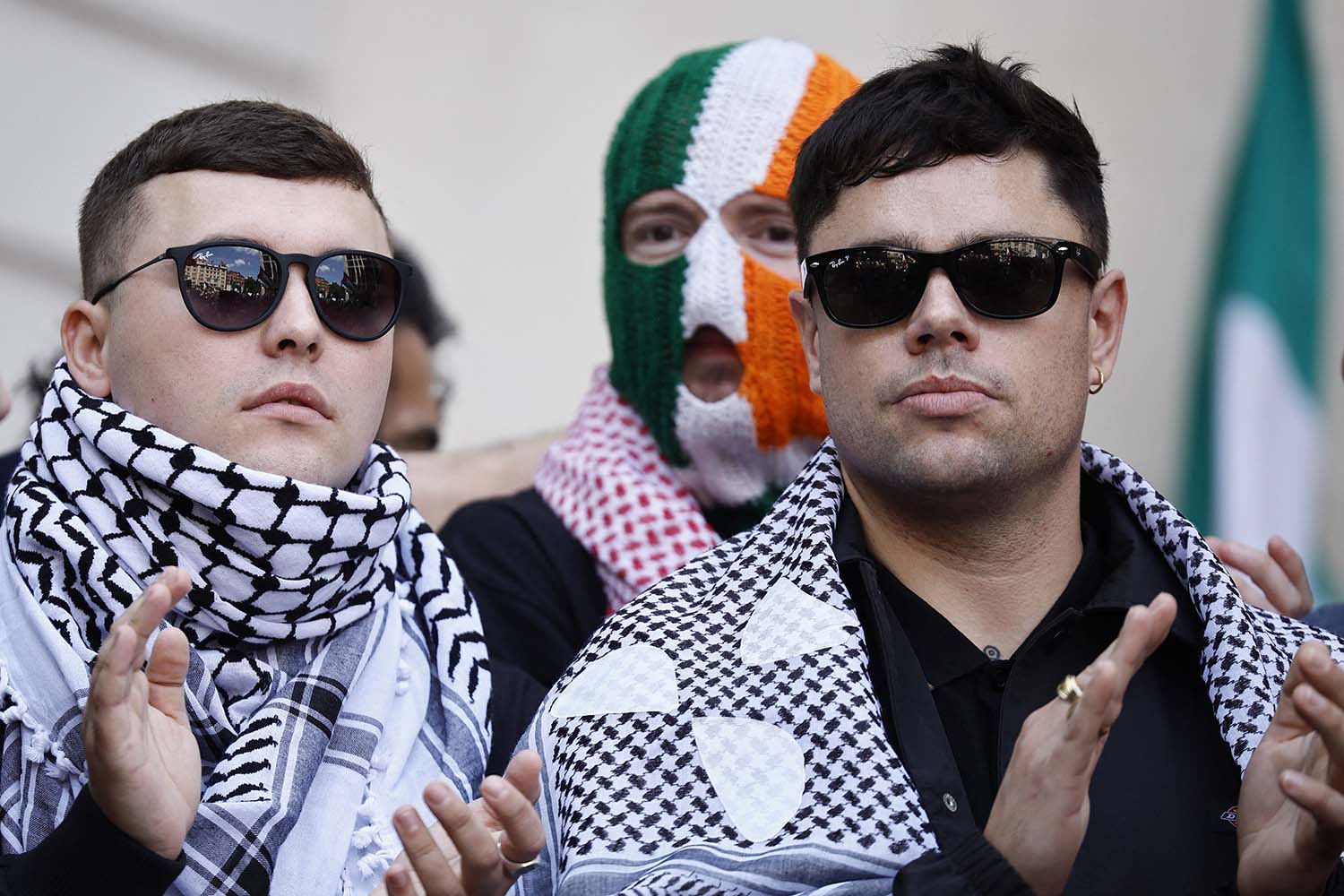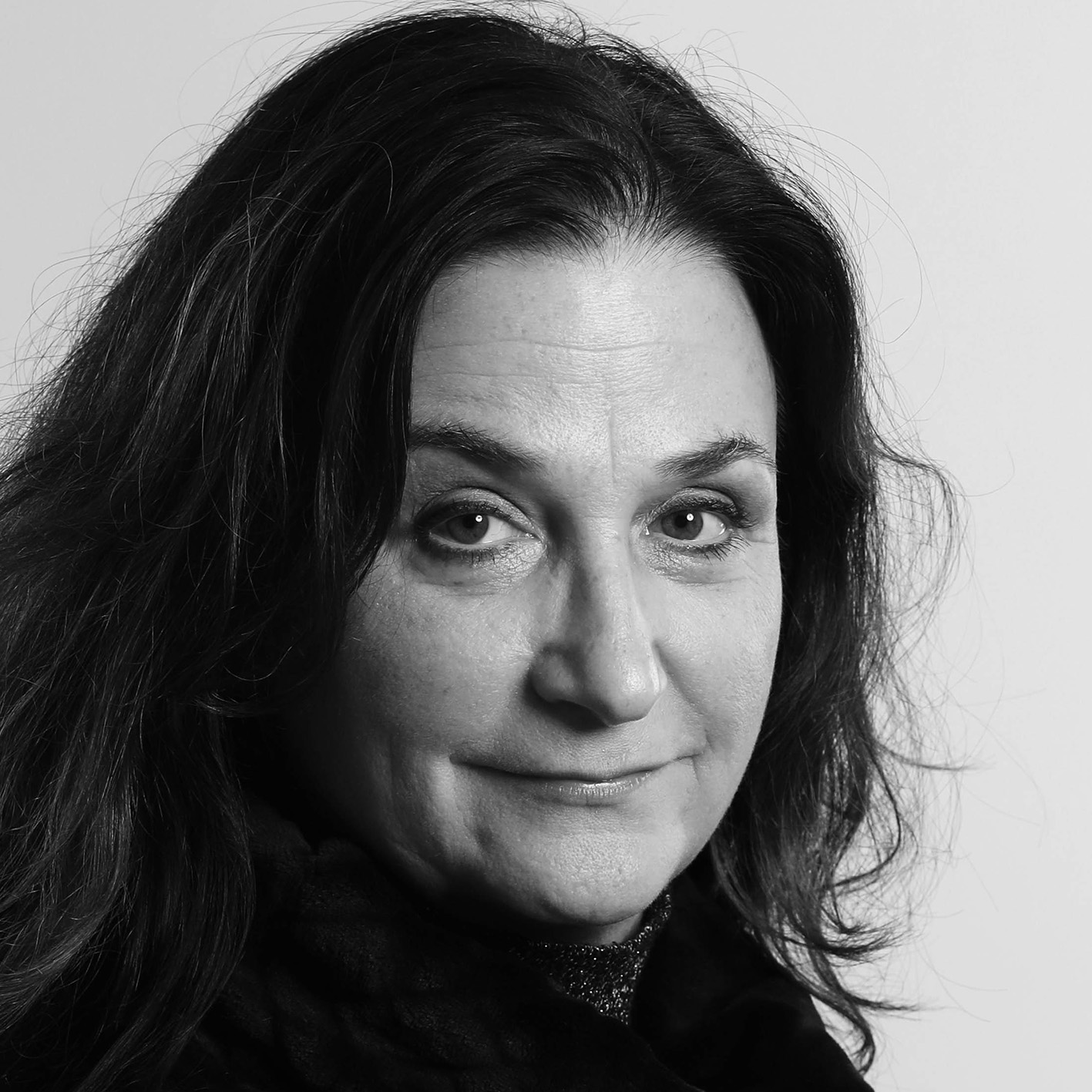Billboards, fly posters, T-shirts – nothing unusual outside a music venue. But the slogans on the merchandise are “Defend Kneecap”, “Free Mo Chara”, and it’s the person in the dock that the fans are waiting for.
The Kneecap musician Mo Chara, real name Liam Óg Ó hAnnaidh, arrived to face a terrorism charge at Westminster magistrates court in London on Wednesday after the emergence of footage of a November gig at the Kentish Town Forum which appeared to show a band member shouting “Up Hamas, up Hezbollah”, as the Hezbollah flag was displayed.
Chara, who was released on unconditional bail, denies the charge and his fellow band members have since stated that they do not support either group. In a statement on social media in May, the band said: “We deny this ‘offence’ and will vehemently defend ourselves.”
The court was surrounded by fans with placards. They cheered as a van drove past plastered with the slogan: “More Blacks, More Dogs, More Irish, Mo Chara”, a play on racist signs once pinned outside London boarding houses. The trio, whose other members are Móglaí Bap (Naoise Ó Cairealláin) and DJ Próvaí (JJ Ó Dochartaigh), also had the slogan displayed on billboards around the capital.
The band have embraced the controversy around the legal case. “It is always down to authenticity and to commitment when it comes to taking a political position,” says PR agent Mark Borkowski. “But then those are the artists who then get targeted by the music industry and by the state.”
Last night, Keir Starmer added his voice to calls for Glastonbury to drop the rappers from performing on Saturday. He said it is “not appropriate” for the group to appear. “I think we need to come down really clearly on this. I won’t say too much, because there’s a court case on, but I don’t think that’s appropriate,” he told The Sun on Sunday.
They are a Northern Irish band with very strong rebellious political instincts. They were never going to quietly put those attitudes away
They are a Northern Irish band with very strong rebellious political instincts. They were never going to quietly put those attitudes away
Mike Smith, former music executive
On Friday, the BBC indicated it would still transmit Kneecap’s Glastonbury set, despite the charges Chara faces and protestations from the Conservative leader Kemi Badenoch. However, the performance will probably go out with a delay on the live-streaming channel. The corporation’s main channels will instead feature the comparatively anodyne sounds of Jade from Little Mix and Californian band Weezer.
“They are called Kneecap, and one comes on stage in a tricolour balaclava: that is who they have always been,” said the former senior music executive Mike Smith.
“They are a Northern Irish band with very strong rebellious political instincts. They were never going to quietly put those attitudes away. This incident has not been good for their career. They were doing brilliantly and were thought to be one of the most interesting young bands around. So they are not capitalising on this issue to sell tickets. In fact, it’s a threat to their livelihoods.”
Kneecap have been dropped from July’s TRNSMT in Glasgow and a live session at Cornwall’s Eden Project. And there have been calls to drop them from August’s Belfast Vital festival, where they are due to appear as special guests of Fontaines DC for a sold-out set.
Newsletters
Choose the newsletters you want to receive
View more
For information about how The Observer protects your data, read our Privacy Policy
In April, the group faced criticism for displaying messages about the war in Gaza during their set at US music festival Coachella.
Former attorney general Sir Michael Ellis has argued that although free speech is a “very important right” it has “always excluded hate speech”, and that Glastonbury and other British festivals “have a responsibility to really check bands whose behaviour may cross that line”.
The free speech issue is crucial, said Jemimah Steinfeld, chief executive of Index on Censorship, but she does not believe Kneecap should be heralded as brave.
“It is not as if they are taking some particularly difficult or valiant position. They have been charged for supporting on stage two groups that are guilty of human rights offences… It’s not the same as the case of Iranian rapper, Toomaj Salehi, who stands up for women’s rights. I can’t judge what the motivations were for Chara’s speech, but it was clearly part of an act. It does not make him a free-speech hero.”
Photograph by BENJAMIN CREMEL/AFP via Getty Images

